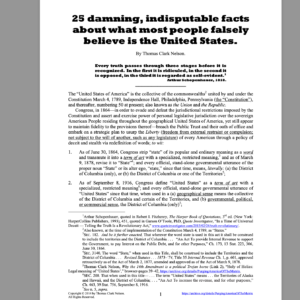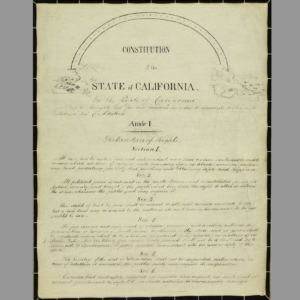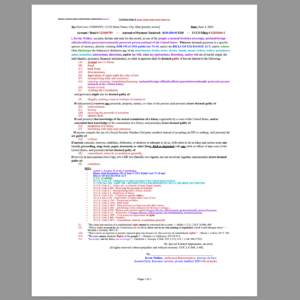Here’s how that can be done if proper and factually supported:
🔑 1. Establish Standing with a Security Interest (UCC Article 9)
-
File a UCC-1 Financing Statement naming yourself (or your trust/estate) as Secured Party, and the party claiming ownership (bank, servicer, trustee, etc.) as the Debtor.
-
Reference the property address, deed of trust, and mortgage note as collateral.
-
Cite relevant authority:
-
UCC § 9-105 (control of deposit accounts)
-
UCC § 9-607 (right to collect, enforce, or dispose of collateral)
-
This puts the world on notice that you are asserting a legal and equitable lien and intend to enforce your claim over any proceeds or title interest.
🧾 2. Perfect the Equitable Claim via Affidavit
-
Draft an Affidavit of Security Interest & Equitable Claim, signed under penalty of perjury.
-
State:
-
You provided the original instrument or value (note, down payment, etc.)
-
The foreclosure was fraudulent, procedurally defective, or violated due process.
-
You are the Holder in Due Course (UCC § 3-302) with rights to the note or contract.
-
That all funds or proceeds from the foreclosure must be accounted for and returned.
-
Attach:
-
UCC-1 Filing
-
Deed/Note copy
-
Proof of payments
-
Affidavit of prior tender or conditional acceptance (if applicable)
⚖️ 3. Invoke Equity and Trust Principles
-
In equity, he who has the beneficial interest is the true owner.
-
If the trustee or servicer never proved true party in interest, or failed to rebut your claim, then their action may be void.
-
UCC § 3-603 provides that tender discharges the obligation if not returned or dishonored.
If you can show:
-
You tendered lawful payment or setoff
-
The servicer accepted your negotiable instrument or offer, but foreclosed anyway
-
Or that the sale occurred under fraud, coercion, or without standing
Then your equity position is restorable by law.
💰 4. Claim Proceeds, Surplus, or Title
Once you’ve perfected the claim:
-
Demand an accounting of all proceeds.
-
File a Notice of Equitable Claim or Lis Pendens in the county.
-
If the foreclosure deed is voidable, pursue:
If the property has been sold:
-
You can still pursue the proceeds from the sale, especially if you had a superior claim or if fraud was involved.
🏁 Summary
✅ File UCC-1 to perfect your lien
✅ Assert your equity through affidavit and notice
✅ Prove tender or unrebutted performance
✅ Challenge any unlawful foreclosure through equity and commercial law
✅ Seek return of the home or proceeds through court or administrative remedy












